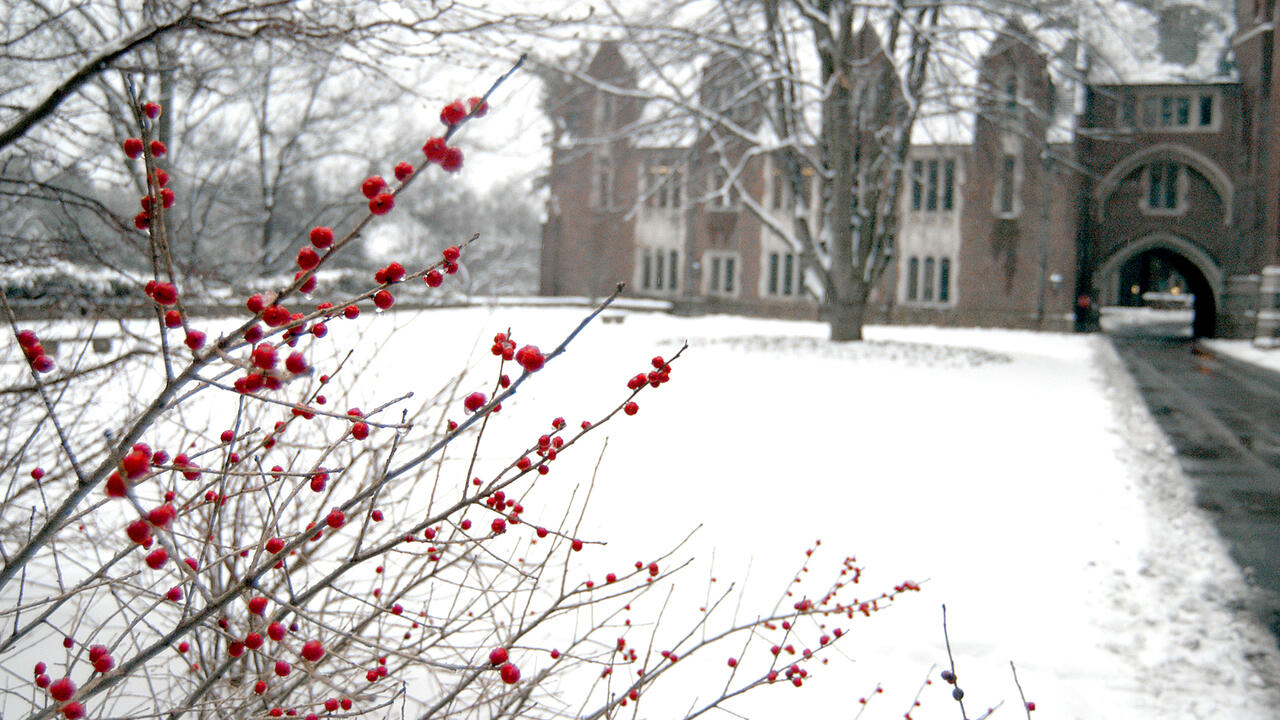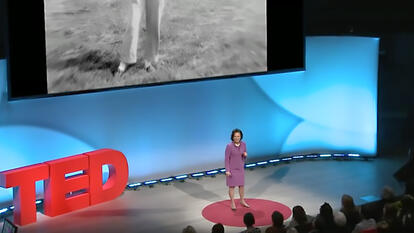
Love or Hate, Actually: The Wellesley Community on Holiday Movies
Wellesley College: home to serious academics, world-renowned faculty, highly successful alums, and, apparently, individuals with very strong opinions about holiday movies. A recent informal social media poll found that 67 percent of the Wellesley community can’t wait to curl up with a big mug of hot chocolate and a festive winter-themed romance, the kind made famous by the Hallmark Channel.
“I love light-hearted movies with happy endings, Christmas, and snow, and Hallmark movies definitely check all of those boxes,” said Abby Webster ’22. “Plus, I think that with COVID still dominating the news, it's really important to take a break and use movies as a way to relax!”
On the flip side, 33 percent of the Wellesley community could not care less about what movies are on repeat in the month of December. “I dislike Hallmark movies because they are not diverse, not creative, and always play on the worst stereotypes of women,” said Madison Courtney ’25. “It’s either a ‘girlboss’ who needs to go back to small-town values and fall in love or a weird Christmas town that needs saving. If it has Candace Cameron Bure in it, I’m out.”
Victoria Percoco ’23 is also not a big fan of the genre, but she understands the movies’ appeal: There is never a bad ending, the couple always lives happily ever after, and there is always some magic—figurative or literal—that sparks that “quintessential Christmas mood,” she said: “They simplify what are, in real life, much more complicated narratives.”
During the cold weather, when people are seeking warmth, perhaps the temporary emotional warmth generated by watching a well-made love story is what draws people to the genre.
Min Joo Lee, Visiting Lecturer in Women’s and Gender Studies
“I started off as a Hallmark movie skeptic,” said Shanté Brown, dean of first-year students. Brown once had a roommate who loved the whole holiday romance genre, and Brown would mock her endlessly for it. Then one day, her roommate was watching The Christmas Ornament, and something drew Brown in. “It felt different, like there was real feeling behind it,” Brown said. She loved how the movie portrayed the very real and challenging problem of trying to handle grief around the holidays. Now Brown finds herself watching the Hallmark Channel every winter to try to find another film that will move her in the same way The Christmas Ornament did.
“Don’t get me wrong, there are a lot of cheesy ones,” said Brown. “Every year they put out movies that they put out the year before, but with a different cast.” Brown is also quick to point out that these movies are notorious for their lack of diversity: “As a young Black kid, I never saw a Christmas movie with my face in it.” Brown grew up with a white mom, and said that she didn’t look like anyone else in her family. “There are families where there are so many different faces, and one day I’d love to be able to have my kids watch a movie and be able to see our diverse family represented,” she said. “I also wish they’d use more people of color than Tamera Mowry.”
Some members of the Wellesley community are actively doing work to diversify the genre. Television writer Lynn Sternberger ’07 has written a queer-inclusive rom-com for Hallmark that, while not holiday-themed, will help increase the types of representation seen on that channel. Right before COVID, Sternberger was invited to a meeting with Hallmark execs about how to diversify the stories they tell. She pitched an idea for “a universe of intersecting romances that all start through a personals app,” and they hired her to write it.
Sternberger is passionate about reaching queer audiences that aren’t currently being served. “I may not love every Ryan Murphy production, but the fact that he has helped pipe queer experiences into every home that has a Netflix subscription is pretty incredible,” she said. “Some queer 13-year-olds in homophobic environments are turning on Netflix and watching The Prom. That’s amazing. I had to haunt the aisles of Blockbuster and try to decipher the queer-coding on the DVD case art.”
Despite the problematic representation issues in seasonal movies, Min Joo Lee, visiting lecturer in women’s and gender studies, who studies what she calls “women’s genres” of television and movies, sees no issue with loving this kind of film. “Some feminists argue that rom-coms like Love, Actually are detrimental to feminism (the movie admittedly has some scenes that could be interpreted as stalkerish) while others claim that rom-coms are also evolving with the times,” said Lee. She said enjoying holiday romances can feel like a dilemma for some feminists because women’s genres have been “historically maligned for being vapid and brainless.” Soap operas, rom-coms, melodramas, and chick flicks have been trivialized, she said, because the topics they address and women’s emotions were seen as insignificant compared with the issues films and novels that were not geared toward a predominantly female viewership supposedly possessed.
Love them or hate them, watching holiday movies together can be a bonding experience. “I love that they’re often multigenerational viewing,” Sternberger said. “I have a few friends who watch Hallmark movies because their moms and/or grandmas watch Hallmark movies. It’s something they always did while growing up.”
Webster said each year she watches specific movies with her family and friends: “They are a great conversation starter and a way to connect with people.”
Plus, Lee said, “the sole purpose” of these types of holiday tales is to touch people’s hearts: “During the cold weather, when people are seeking warmth, perhaps the temporary emotional warmth generated by watching a well-made love story is what draws people to the genre.”



